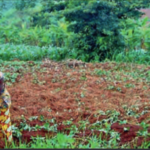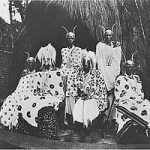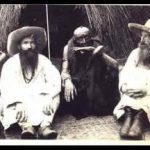Gifts as a Reciprocity Mechanism
Social obligations are most often expressed in terms of visits. But “to be seen” is so important, whether it be by the patron or by one’s relatives, that the whole afternoon of every day is usually given to such visiting.
The customs of visiting and paying court “to be seen” over-lap, but are kept distinct in the minds of the Banyaremera. Visits are important in all social relations and most of them imply the giving of gifts. Among the abavandimwe, visits are frequent, especially from the younger to the eldest. Distribution of produce, as gifts, among the abanvandimwe is made according to the needs of the recipients.
The same sort of visits and gifts prevail within the nuclear feudal cluster, where, however, they are more rigorously controlled by custom. Several years before the beginning of the present investigation, however, the administration had forbidden these redevances, as it had prohibited the corvée labor to the chieftain. It may be said that presents of banana beer were stillallowed at all levels and, in a way, are representative of the “gift-giving” relationships that are generally present, but gifts of beer are governed by different rules of conduct.
Beer, as a highly perishable commodity, is ideally suited to rapid redistribution. It would be futile to point out, one by one, all of the occasions that prompt a gift of beer. Most of them will come under a few general headings, and a few others will serve as illustrations.
Firstly, beer is distributed at home by a man, who upon making his beer, invites his close neighbors and close relatives in for a chat. Or, he may hold a beerfest for a working-party.
Secondly, there are the more formal gifts of calabashes of beer. (In Central Ruanda, these gifts are made in earthen pots rather than in calabashes.) Some of these gifts of beer have special names:
(1) Ibiyagano. A gift of beer made to a man who has lost a member of his family. This is always accompanied by a bundle of firewood.
(2) Ibihembo. A gift of beer to a woman who has given birth. This is also always accompanied by a bundle of firewood.
(3) Inzoga zogusaba. (The literal translation means “the beer for betrothal.) Of the many calabashes of beer that are given for betrothal, three have special names:
a) Gufatairembo. (“To pass the door”, i.e., “to open the door”.) This gift of beer is given to initiate the betrothal proceedings.
b) Nyina w’umwana. (“For the mother of the girl”.) This beer accompanies the bride price.
c) Ugutebutsa. (“To accelerate proceedings”.) This gift of beer is made when, after many gifts of beer, the parents of the bride have not yet indicated that they are ready for the marriage ceremony to take place.
(4) Ibitwikurura: (“To uncover”.) The gift of beer brought by the bride’s father to indicate that the bride could come out of her husband’s house after the period of seclusion which followed the wedding. A rich man might bring up to twelve calabashes of beer on this occasion, and everyone brings an accompanying minimum gift of two pots of butter. These pots of butter are obligatory. If one has no cows, one asks a herder or a cow owner for the milk required to produce the butter; they may not refuse this request.
(5) Ibicamwirembo. (“To pass through the door”.) This is the beer brought on the visit made by a young man to his parent-in-law following his marriage. The calabashes might number up to eight or nine, and must be accompanied by a minimum of two wooden containers of milk.Fulfillment of the request for milk in order to make this gift is also obligatory for the herder or cow owner.
Other gifts of beer fall into the same category of formal gifts as those listed above. However, their names simply describe the occasion of the gift. One such gift of beer is inzoga yogucyura. This is beer given by a husband to make a wife return from her father’s home, if she has left with intent of divorce. A woman might also bring beer home to her father and accompany this with small gifts of foodstuffs for her mother. Or, a man is obligated by custom to bring beer on his frequent visits to his wife’s father. The wife’s father brings beer when he reciprocates the visits of the young husband. Beer is also used “to thank” someone (inzoga yokwitura), or to thank one’s patron upon receipt of a cow (gukura ubwatsi: lit. “to pull up the grass”; a gesture of thanks).
Because of the necessity “to be seen” by the chieftain there is a constant flow of visitors bringing beer at the house of the chieftain. The beer is promptly redistributed among those present. This flow stopped alter the elections of July 1960, because visits to the ex-chieftain were forbidden by the new burgomaster. Nevertheless, they indicate the chieftain’s past role as a pivot for redistribution.
Evidence secured from old timers and the ex-chieftain himself, as well as from the official documents of the administration, shows that the chieftain had rights to first fruits and he received various gifts from those who wanted “to be seen” by him. If he were a “good” chieftain, he would redistribute these gifts after taking his share. If he was a “bad” chieftain and did not do so, he would lose his constituents to a neighboring “good” one. In any case, first fruits and redevanceswere eventually replaced by a salary, which could also be redistributed.
https://uk.amateka.net/gifts-as-a-reciprocity-mechanism/https://uk.amateka.net/wp-content/uploads/2019/12/file7-1.jpeghttps://uk.amateka.net/wp-content/uploads/2019/12/file7-1-150x150.jpegModel CitizenshipSocial obligations are most often expressed in terms of visits. But 'to be seen' is so important, whether it be by the patron or by one's relatives, that the whole afternoon of every day is usually given to such visiting. The customs of visiting and paying court 'to be seen'...BarataBarata rpierre@ikaze.netAdministratorAMATEKA | HISTORY OF RWANDA




